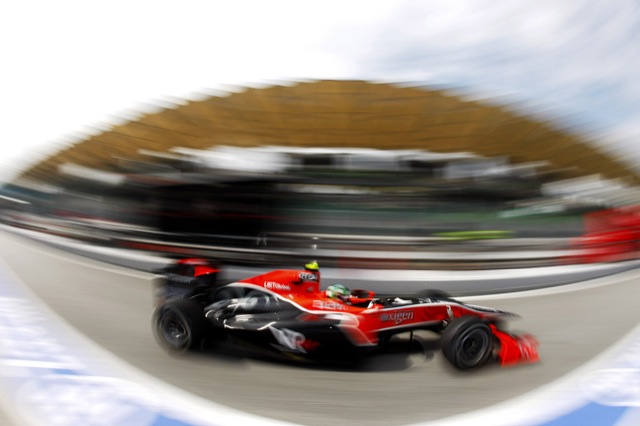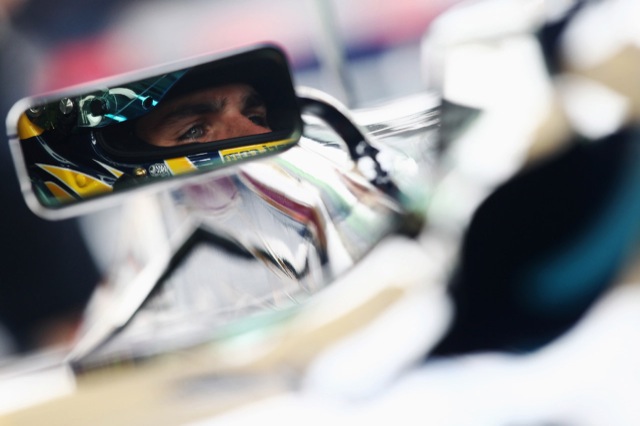In a press conference held earlier this morning in Tokyo, Toyota announced it is to withdraw its participation in Formula One with immediate effect. The news comes after much speculation all year that the Japanese marque could be another to succumb to the economic crisis, similar in vein to Honda and BMW. Although not necessarily a surprise, the withdrawal does add to the growing problems facing Formula One.
In December last year, Honda surprised all by withdrawing from the sport, leaving drivers and staff potentially without jobs. Of course, we all now know that Ross Brawn and Nick Fry saved the team and sensationally went on to take both world championships in a thrilling season of motor racing.
Earlier in the year, BMW also announced they would be leaving the sport at the season’s close, and the future of the Hinwil team is currently up in the air. It is hoped that Peter Sauber, the former owner of the squad, can reprise his role and keep the squad going, although currently the situation doesn’t look too good.
And now Toyota have become the third manufacturer in less than a year to pull out of Formula One.
Toyota Motor Corporation (TMC) announces it plans to withdraw from the FIA Formula One world championship at the end of the 2009 season.
TMC, which had viewed its participation in F1 as contributing to the prosperity of automotive culture, remained dedicated to competing at the pinnacle of motor sports even in the face of the abrupt economic changes that started last year.
However, when considering TMC’s motorsports actitives next year and beyond from a comprehensive mid-term viewpoint reflecting the current severe economic realities, TMC decided to withdraw from F1. Toyota Press Statement.
Toyota have signed the recently agreed Concorde document, which essentially ties them to the sport through to the end of 2012. However, this position may be able to be transferred to Sauber if they can cobble together a team and financial backing.
Both Jarno Trulli and Timo were expected to leave the squad, with Glock being suggested as a partner for Robert Kubica in the second Renault. Jarno Trulli may end up with a new team, his experience perhaps being seen as a big enough draw over his lack of ultimate race pace.
Interestingly, Autosport are also reporting that Renault have an important meeting today to discuss the company’s future, and although they are expected to continue, I personally wouldn’t be surprised if the Enstone team decided to follow Toyota and bow out. The loss of Flavio Briatore and Pat Symonds amid huge controversy earlier in the year, combined with the loss of star driver Fernando Alonso, could be enough to sway the minds of those making the decisions.



















With three or even possibly four major team names in Formula One quiting the sport during the last 9 months is nothing more than a crisis.
For the many reasons that these teams have disclosed , the fact remains F1 is in trouble, many grandstands are not full and the fans are just not coming back to a sport that has had its share of controversy this year.
Whether it be cheating or lawsuits or threat of a runaway series or the world financial crisis, the image of what is supposed to be pinacle of motorsport is one that has become diminished in the eyes of sponsors who simply don’t want there name associated with race teams who have fallen prey.
The cost of victory is high and the price of finishing second is ending programs that once made Formula One what it was. It seems unlikely that the few new teams for 2010 will have the kind of success that Brawn GP had the year. History will look back on 2009 and the tale of what Brawn did will be viewed as rather unlikely and unexpected and that will certainly affect newcomer challengers like Manor, Campos, Lotus and USF1.
The idea that “if Brawn could do, it then we can too” will become difficult to imitate. Victory for the new is doubtful in consideration of McLarens recent return to form, Ferrari now with Alonso and Massa back and that Red Bull is pretty much now on the top step.
Formula One Teams must raise the standards of its own image for it to regain its place in motorpsort or face its potential for further crisis.
Not a suprise, but the situation hilights the same old line with car companies in F1- they will only be there when it is easy for them to do it.
I suppose the big question is A.) What happens with their entry, and B.) dose the former BMW outfit take over?